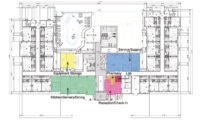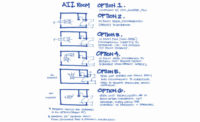Though the U.S. Dept. of Homeland Security has determined the work of building and fire prevention departments to be essential to the nation’s response to the COVID-19 pandemic, 60% of building officials responding to a recent survey by the International Code Council say they do not have the capability to “remotely” carry out critical aspects of their work. Ninety-three percent of code officials also report that their departments are still performing inspections, either remotely or in person.
In addition, 26% of the more than 1,150 respondents report they have received permit requests for COVID-19-related temporary occupancies and/or temporary structures in alternative locations, such as school gymnasiums, hotels, outpatient surgical centers or in pop-structures in parking lots. ICC says jurisdictions need federal funds to transition to remote permitting for these critical facilities.
For ENR’s latest national coverage of the impacts of the COVID-19 pandemic, click here
ICC conducted the initial survey from March 22 through April 1. Respondents from the 50 U.S. states and the District of Columbia provided input. They represent jurisdictions ranging from 1,000 people to over 4.6 million, says ICC.
The code group’s position is that the recently passed Coronavirus Aid, Relief and Economic Security Act (CARES Act, H.R. 748)--which provides state, local, tribal, and territorial governments with $150 billion through a Coronavirus Relief Fund (CRF), $45.4 billion through FEMA’s Disaster Relief Fund and $5 billion through the Community Development Block Grant program--should be available to support the remote work of code departments. The DRF and CDBG programs have funded code enforcement activities previously, says ICC, whose members are building code officials. ICC also has urged the U.S. Congress to allocate support specifically for code-department remote capabilities as part of a fourth coronavirus response measure under consideration.
Working Remotely
Other survey findings are that 65% of respondents said that some or all employees who conduct plan review or inspections are working remotely. In addition, 66% of jurisdictions use a combination of electronic and hard copy versions of building safety codes, while 7% use only electronic versions and 27 use only hard copies. Twenty-three percent of jurisdictions said their employees do not have access to needed hard-copy code books.
Other findings are that 40% of jurisdictions do not have the capability to do electronic/remote plan reviews; 30% do not have the capability to do any aspect of electronic/remote permitting and 61% do not have the capability for electronic/remote inspections.
The survey is ongoing. And soon, ICC plans to release a document outlining best practices for virtual code-compliance activities.





Post a comment to this article
Report Abusive Comment